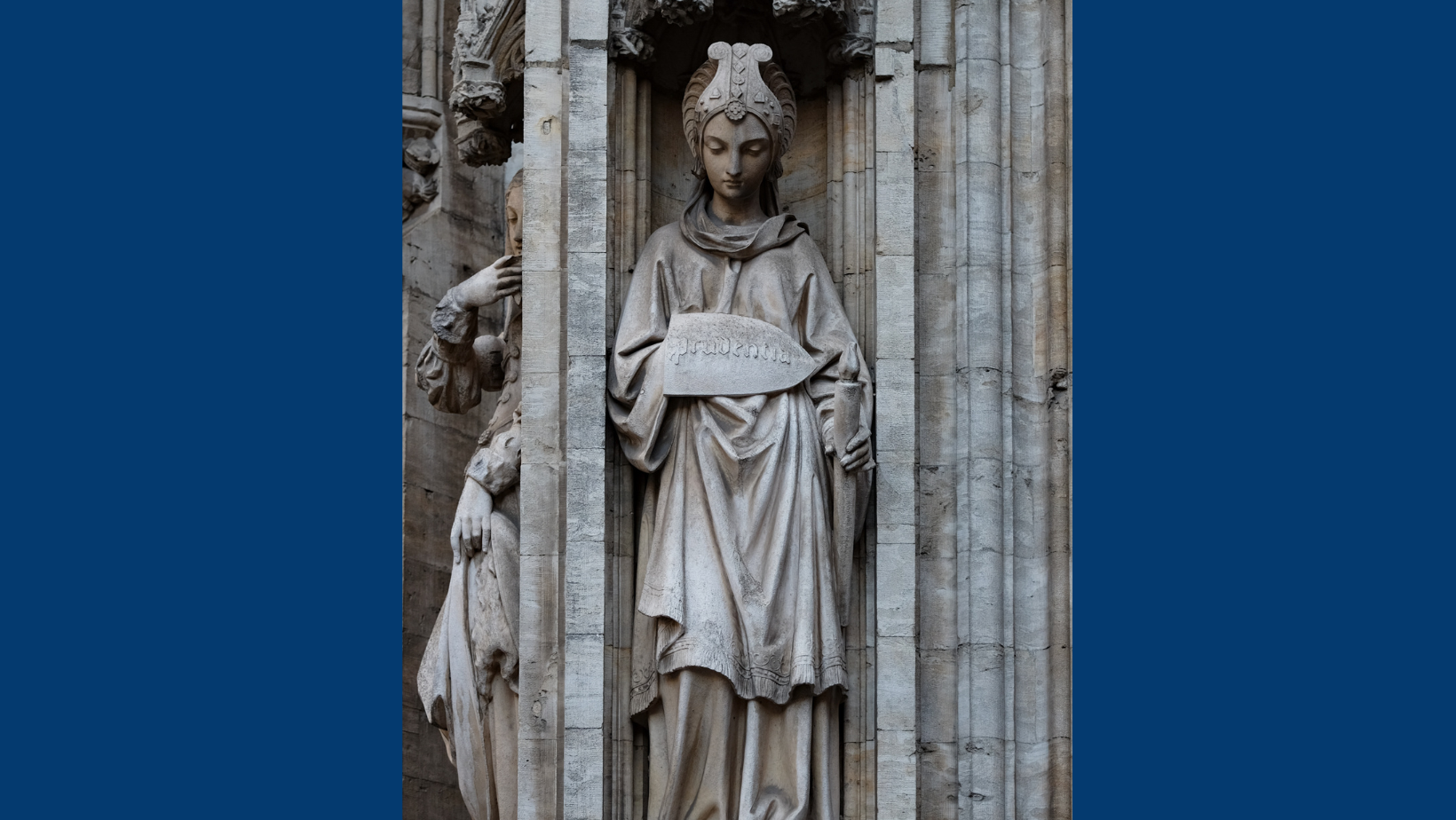In addition to the Honor Code, CCA also embraces the seven classical virtues: prudence, fortitude, justice, temperance, faith, hope, and charity. The first of these, prudence, is wisdom in practical matters—it helps us to determine the best course of action in any situation.
The word prudence comes from the Latin, prudentia, which means foresight or practical judgment—and prudentia is a contraction of the Latin word providentia, from which we get our word providence, as in, the providence of God.
Now, it can be tempting to say on the one hand that humans can never possess true providence—only God can know the future, so prudence isn’t really our responsibility. On the other hand, you may be tempted to say that we can only act in circumstances when the outcome is certain—which we all know is almost never the case.
Neither of these approaches would be, well, prudent.
God gave us reason to consider the future consequences of our actions, even if not the ability to see perfectly the future they will produce. It is our responsibility to use that reason to the best of our ability. Otherwise, we’ll be left just doing what we feel like in the moment.
And as Thucydides observed, “Few things are brought to a successful issue by impetuous desire, but most by calm and prudent forethought.”
Have a wonderful day.


